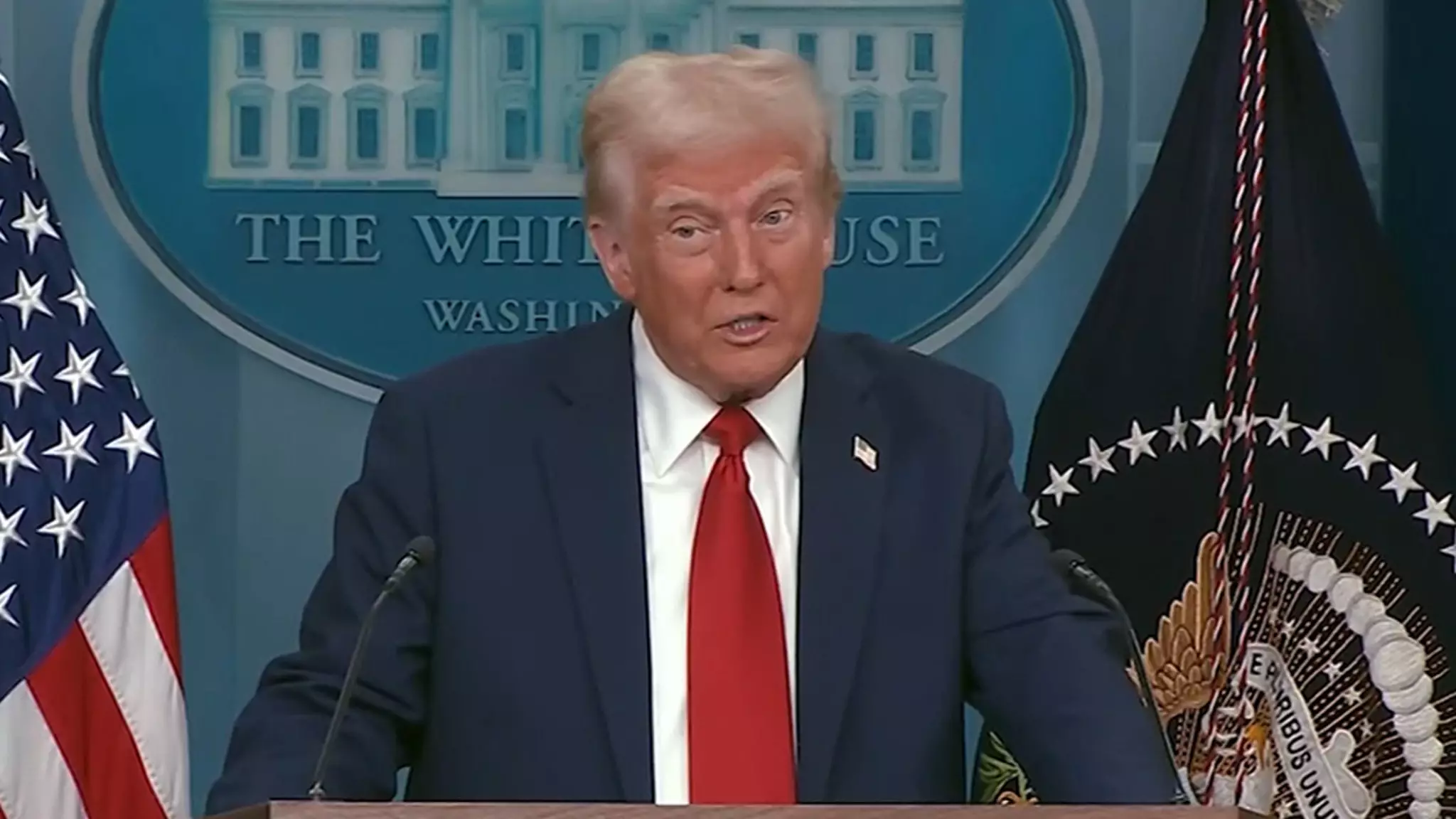In light of a recent catastrophic aviation incident in Washington, D.C., where an American Airlines passenger plane collided with a U.S. Army helicopter, political leaders have been swift to address the aftermath. The disaster resulted in the death of 67 individuals and ignited a heated debate about accountability and the implications of diversity hiring within federal agencies. The discourse surrounding this tragedy has highlighted deep divisions in American political dialogue, especially regarding the nuances of leadership, policy, and systemic safety failures.
Following the crash, former President Donald Trump took to a press conference to express his views, attributing part of the disaster to the Biden Administration’s Transportation Secretary, Pete Buttigieg. Trump’s comments accentuated the continuing partisan strife over issues such as diversity, equity, and inclusion (DEI) in hiring practices at the Federal Aviation Administration (FAA). He argued that these policies could have played a role in compromising the safety and effectiveness of air traffic controllers, suggesting a direct link between such hiring practices and the crash itself.
The immediate reaction from Buttigieg came via social media, where he emphasized the need for ‘actual leadership’ in addressing the tragedy rather than resorting to political blame games. This exchange epitomizes the ongoing tension between both political camps, demonstrating how quickly tragic events can become fodder for partisan rhetoric.
One must ponder how leaders in positions of authority navigate accountability in times of crisis. Trump’s rapid leap to assign blame raises essential questions about the nature of leadership: should leaders prioritize addressing public fears and assuring safety, or do they utilize these incidents to score political points? Furthermore, the insistence on attributing responsibility to DEI hiring practices suggests a failure to engage in a critical analysis of systemic issues within governmental agencies.
The tragedy revealed a concerning lack of clarity regarding the cause of the incident at the time of the press conference. Despite uncertainty surrounding the circumstances, Trump confidently declared that the disaster resulted from air traffic control operations, asserting that the passenger plane was adhering to standard procedures when the helicopter struck. While his comments might resonate with those eager for decisive leadership, they also raise ethical considerations about the responsibility of leaders to provide accurate information, especially amidst ongoing investigations.
The debate surrounding DEI hiring practices often invokes passionate arguments from all sides of the political spectrum. Critics, like Trump, claim that prioritizing diversity over merit compromises safety in high-stakes roles such as air traffic control. Conversely, advocates argue that diverse perspectives in positions of authority lead to innovative problem-solving and improved outcomes in public safety.
It is essential to recognize that assigning blame solely based on hiring practices oversimplifies complex systemic issues that contribute to aviation safety. The overwhelming focus on DEI distracts from the critical need for thorough investigations into regulatory compliance, training quality, and technological adequacies that ensure the safety of air travel. In the wake of tragedy, a more robust conversation around these topics could yield valuable insights into preventing future incidents.
Media outlets play a crucial role in shaping public discourse regarding tragedies. The framing of narratives can influence public understanding and thus affect leadership accountability. Coverage that emphasizes political posturing over systemic evaluation risks fostering a culture where the primary response to crises is one of blame shifting rather than collaborative problem-solving. A more responsible media approach would stress the importance of addressing the root causes of tragedies, encouraging dialogue that leads to practical policy reforms rather than mere political theater.
The D.C. flight disaster should serve as a catalyst for deeper reflection on both leadership practices and systemic improvements. As politicians navigate these turbulent waters, discerning citizens must demand accountability that transcends partisan lines, focusing on collective learning and advocacy for effective policies aimed at enhancing safety for all. Ultimately, it is vital for leaders to prioritize transparent communication and ethical decision-making in the aftermath of disasters, laying the groundwork for a more accountable and safety-oriented governmental structure.

